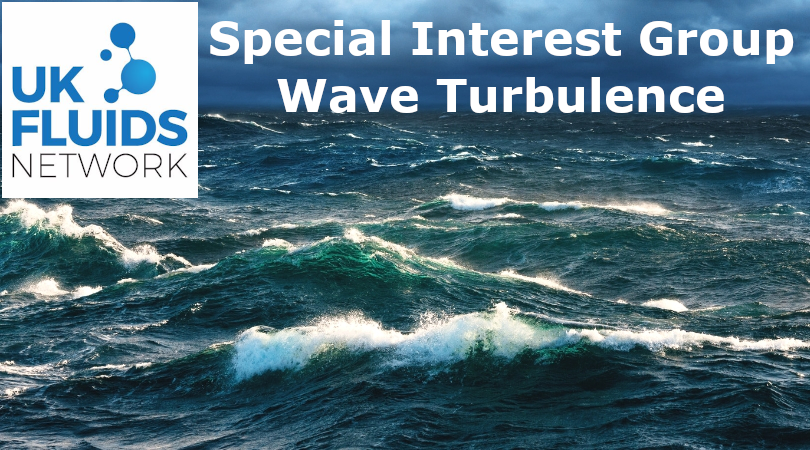
Organisers
Leader: Dr Jason Laurie (Aston University)
Co-Leader: Dr Davide Proment (University of East Anglia)

Leader: Dr Jason Laurie (Aston University)
Co-Leader: Dr Davide Proment (University of East Anglia)
The Wave Turbulence Special Interest Group (SIG) will focus on the development of wave turbulence theory - a non-equilibrium statistical mechanics description of weakly interacting dispersive waves – to strong nonlinearities and applications to industrial related fluid dynamics. Topics range from acoustics, water waves, nonlinear optics, quantum fluids, plasmas, and geophysical turbulence.
The overall scope of the Wave Turbulence SIG is to bring together UK fluid dynamicists, both theoretical and experimental, who work in areas of nonlinear waves, coherent structures, and turbulence, with the aim of actively targeting two goals:
The SIG provides a pathway to achieving these objects by supplying a platform for encouraging academic and industrial collaborations. At the core of the SIG, is the idea of working jointly with experimentalist whose fundamental objectives are understanding the dynamics of waves in strong turbulence, whether in hydrodynamics, optics, or plasmas. Through these close collaborations, it is envisioned that the incorporation of strong nonlinearities in wave turbulence approaches will be accelerated, leading to a completely novel perspective in studying fully developed turbulence. This ambitious goal is hoped to generate excitement in non-academic research institutions and industry, who will be specifically targeted by the SIG for both research and funding collaborations.
The proposed structure of the SIG is to run biannual meetings for the various UK experimentalists and theorists working within the wave turbulence paradigm, with the desire of promoting and developing the field through targeted goals stated above. There is currently no regular meeting that brings together these interdisciplinary researchers under this scope to address future theoretical and experimental challenges, nor a specific wave turbulence group within the UK that promotes its application in technologies. Ultimately, the Wave Turbulence SIG is a first attempt to unite the community and establish a coherent future direction for the subject.